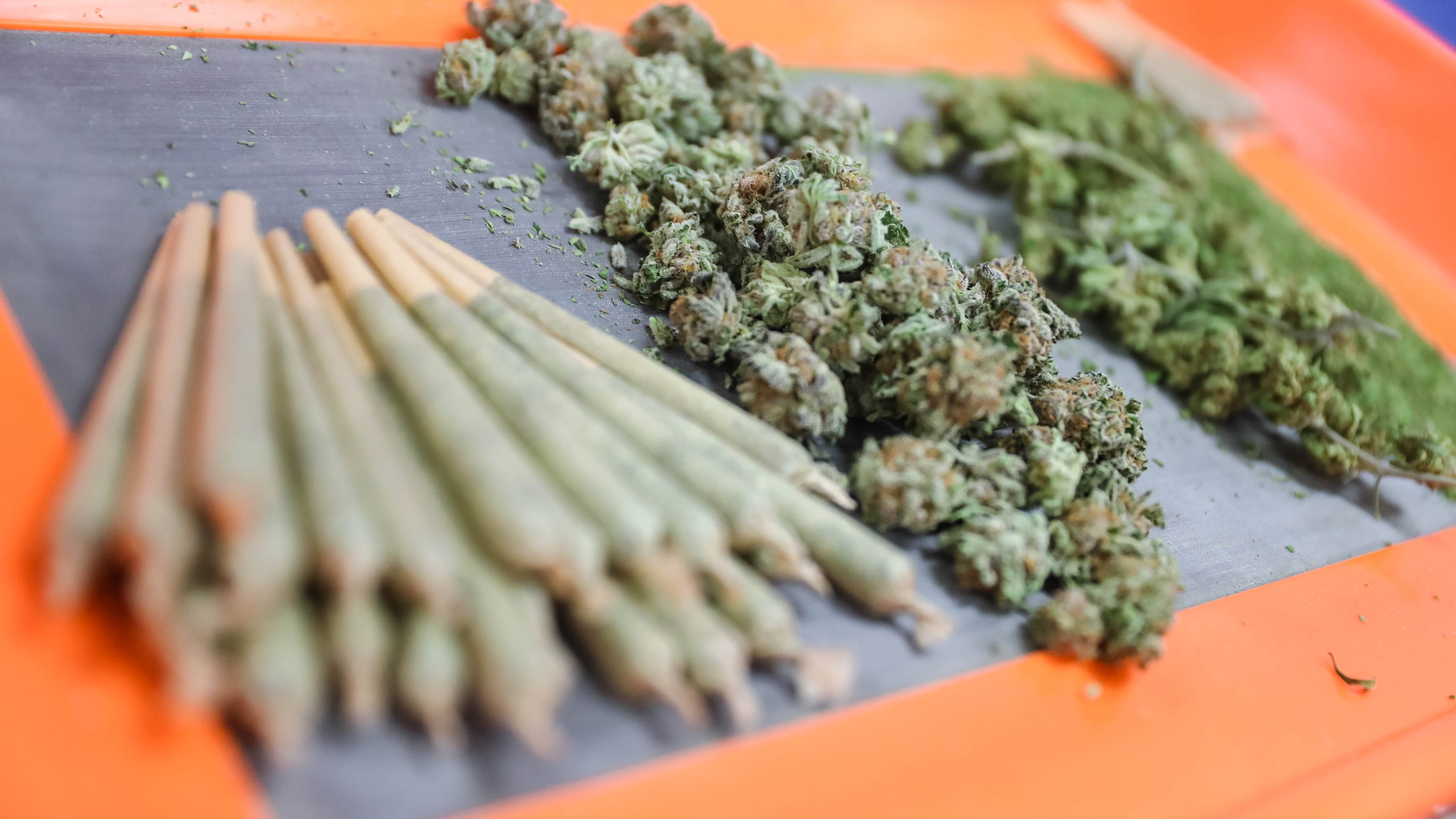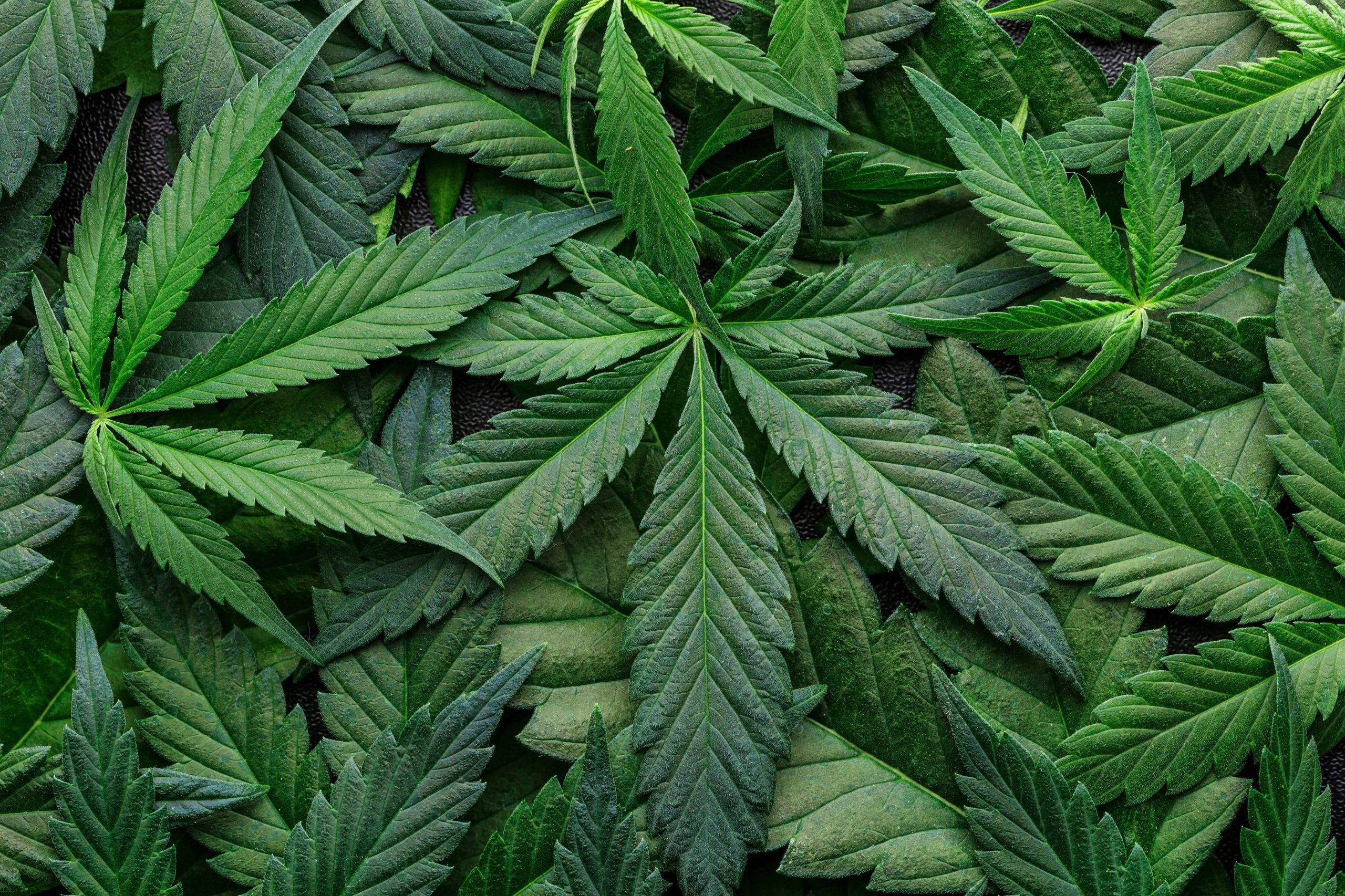
Texas Governor Says ‘Stay Tuned’ For Action On Hemp THC Products That Could Be ‘Happening Soon’
In the heart of Texas, where everything is bigger—including political dramas—Governor Greg Abbott has dropped a tantalizing hint that's got the hemp community on edge. Just days ago, on September 5, 2025, Abbott grinned at reporters and said, “I would say stay tuned on that. Something might be happening soon,” when pressed about future moves on hemp-derived THC products. This comes after two grueling special legislative sessions fizzled out without resolving the hot-button issue of regulating or banning these increasingly popular items. For an industry that's exploded since the 2018 federal Farm Bill legalized hemp, Abbott's words feel like a storm cloud gathering over a sunny market. But what exactly is brewing? With Texas's conservative leanings clashing against a lucrative economic engine, the governor's tease could signal anything from tightened rules to a full crackdown. As of September 9, 2025, the uncertainty lingers, leaving businesses and consumers alike refreshing their news feeds.
Abbott, a Republican stalwart, has positioned himself as a pragmatist here. He vetoed Senate Bill 3 earlier this summer, which aimed for an outright ban on hemp products containing any detectable THC. Instead, he advocates for a balanced approach: age restrictions to keep products out of kids' hands and public health safeguards. Yet, his recent comments to Fox News hint at impatience with legislative gridlock, suggesting he might summon lawmakers back for a third special session. This isn't just political theater; it's a response to growing concerns over unregulated delta-8 and delta-9 THC items flooding smoke shops, gas stations, and even online stores.
Unpacking Hemp THC: From Farm to Controversy
Hemp-derived THC products aren't your grandparents' marijuana. Derived from industrial hemp with less than 0.3% delta-9 THC by dry weight, these goods—like gummies, tinctures, and beverages—exploit a federal loophole to deliver psychoactive effects legally. In Texas, they've become a staple since 2019 state laws aligned with federal standards, allowing sales without the strict oversight of the medical cannabis program. But controversy swirls around synthetics like delta-8, which some polls show majorities of both Democrats and Republicans want outlawed in favor of regulated medical alternatives.
Facts paint a vivid picture: Texas's medical marijuana program, while expanding, remains narrow, limited to conditions like epilepsy, autism, and terminal cancer. It's set to add nine new dispensary licenses in December 2025, with more in 2026, but access is cumbersome. Hemp THC fills the gap for many, offering relief for chronic pain, anxiety, and sleep issues without a prescription. Yet, critics, including Lt. Gov. Dan Patrick, argue these products pose public safety risks, proliferating intoxicating options that skirt marijuana laws. A recent Department of State Health Services proposal aims to broaden medical cannabis qualifying conditions and introduce inhalation standards, but it doesn't touch the hemp side.
Legislative Rollercoaster: Bans, Vetoes, and Stalemates
The path to potential action has been a wild ride. During the regular session, the Senate unanimously approved a ban on hemp THC, but Abbott's veto killed it, calling for revisions focused on regulation rather than prohibition. Then came two special sessions, ostensibly for electoral redistricting, but THC crept onto the agenda. Senate Bill sponsors like Charles Perry pushed for eradication, while House bills like HB 42 offered consumer protections against accidental over-THC purchases, and HB 195 proposed full adult-use marijuana legalization.
Democrats' quorum-breaking walkout stalled progress, leaving everything in limbo. A last-minute push for compromise failed, with no deal on tightening rules. Meanwhile, a partial win for regulators: A ban on THC vape pens took effect September 1, 2025, amid fears of youth access and health risks. No broader ban materialized, but Abbott's "stay tuned" suggests the fight isn't over. He might call another session before the 2027 regular one, potentially as early as next year.
The Economic High: Texas's Booming Hemp Industry
Here's where numbers get eye-popping. Texas's hemp market is an $8 billion juggernaut, supporting over 53,000 jobs across farms, processors, and retailers. From Caprock Family Farms in Lubbock to urban smoke shops in Dallas and Austin, this sector has grown exponentially, fueled by demand for alternatives to traditional cannabis. A ban could wipe it out, decimating livelihoods and tax revenues. Already, the vape ban has hit hard—some shops report a 20% sales plunge.
Advocates rallied with over 100,000 petition signatures urging Abbott to reject bans, highlighting benefits for veterans and pain sufferers. Small businesses argue regulation, like mandatory 21+ sales (already voluntary at many spots), would protect consumers without killing innovation. The industry's ripple effects touch agriculture, manufacturing, and retail, making it a cornerstone of Texas's diverse economy.
Voices from the Ground: Stakeholders Weigh In
From hemp farmers to shop owners, reactions are mixed but intense. Central Texas retailers, like those in Waco, navigate uncertainty by diversifying stock and educating customers. One vendor told local media, "We're just trying to stay afloat amid the buzz of a potential ban." Hemp advocates celebrate the sessions' failure as a temporary victory, but warn of fatigue: "There's no rest for the weary."
On the flip side, ban supporters cite safety, pointing to unregulated products' risks. Polling shows broad backing for curbing delta-8, with preferences for licensed medical programs over corner-store sales. Patients, including veterans, plead for access, arguing hemp THC offers affordable relief where medical cannabis falls short.
Navigating the Market: Options for Consumers and Businesses
Amid the limbo, savvy players adapt. For consumers, THC Products Online remain accessible through reputable sites, offering discreet delivery of gummies, edibles, and tinctures compliant with current laws. Businesses eye THC Products Wholesale to stock up before any changes, sourcing bulk from trusted suppliers to maintain inventory. Meanwhile, THC Products White Label services allow entrepreneurs to brand their own lines, customizing formulas for niche markets like wellness or relaxation.
These avenues underscore the industry's resilience. With voluntary age checks and lab testing becoming norms, the market evolves even without mandates. For wholesalers, economies of scale in an $8 billion sector mean competitive pricing, while white-label options foster innovation amid regulatory haze.
What Lies Ahead: Predictions and Preparations
As Abbott hints at action "happening soon," speculation runs rampant. A third special session could force a compromise: perhaps banning synthetics while regulating natural hemp THC with 21+ limits and testing standards. Or, it might escalate to a full ban, crippling the industry. Experts predict expansion of medical cannabis as a counterbalance, with more dispensaries easing access.
For now, stakeholders prepare: stockpiling, lobbying, and diversifying. Texas's hemp saga blends politics, economics, and culture in a uniquely Lone Star way. Whether Abbott's tease leads to reform or restriction, one thing's clear—the high-stakes game continues. Stay tuned, indeed.
Unlock the potential of Texas’s booming $8 billion hemp market with D Squared WorldWide’s premium THC Products Wholesale! Our high-quality, lab-tested gummies, tinctures, and edibles meet the demand for hemp-derived THC, perfect for retailers navigating the evolving landscape. With uncertainty looming from Governor Abbott’s recent tease about hemp regulations, now’s the time to stock up on compliant, in-demand products. Partner with D Squared WorldWide to secure your supply and stay ahead. Don’t miss out—schedule a call today to explore our wholesale offerings and customize your inventory for success in this dynamic market!
Reference:
1. Adesina, I., Bhowmik, A., Sharma, H., & Shahbazi, A. (2020). A review on the current state of knowledge of growing conditions, agronomic soil health practices and utilities of hemp in the united states. Agriculture, 10(4), 129. https://doi.org/10.3390/agriculture10040129
2. Antle, J. and Cho, S. (2024). Economic potential of industrial hemp in oregon: an ex ante minimum‐data assessment. Applied Economic Perspectives and Policy, 47(1), 241-255. https://doi.org/10.1002/aepp.13477
Kruger, J. and Kruger, D. (2022). Delta-8-thc: delta-9-thc’s nicer younger sibling?. Journal of Cannabis Research, 4(1). https://doi.org/10.1186/s42238-021-00115-8



